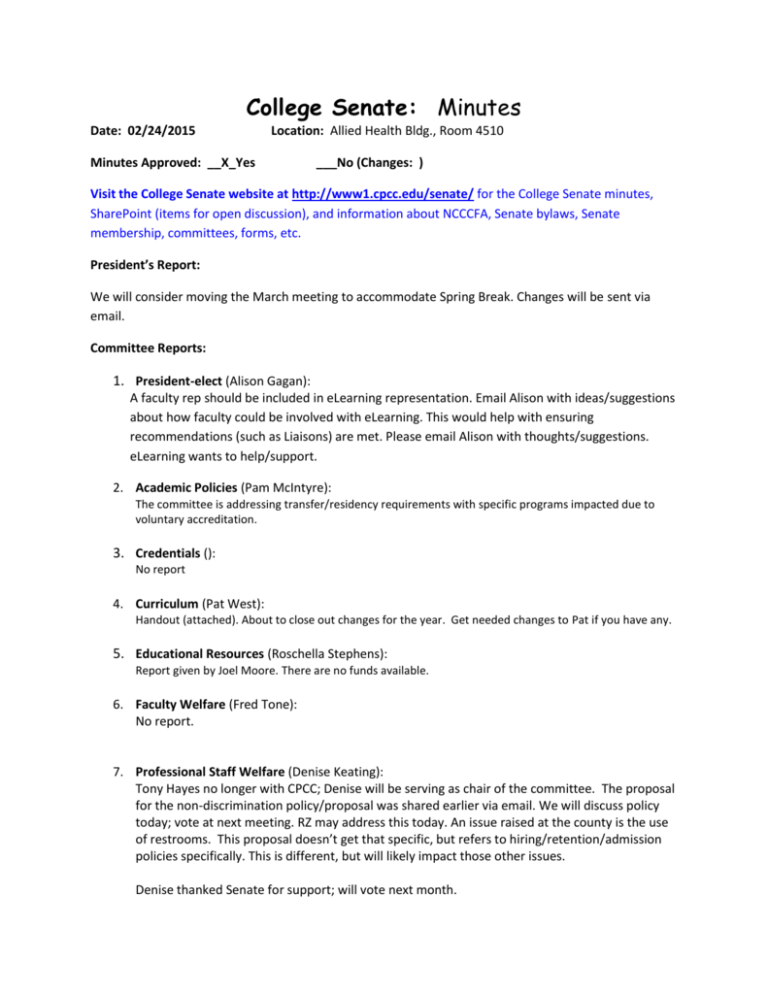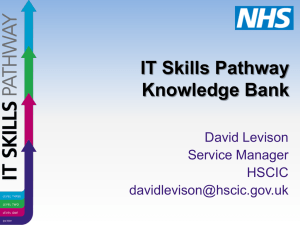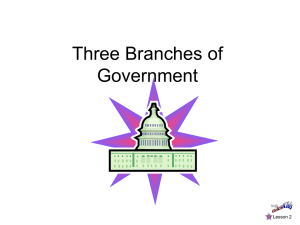February 2015 College Senate meeting minutes
advertisement

College Senate: Minutes Date: 02/24/2015 Location: Allied Health Bldg., Room 4510 Minutes Approved: __X_Yes ___No (Changes: ) Visit the College Senate website at http://www1.cpcc.edu/senate/ for the College Senate minutes, SharePoint (items for open discussion), and information about NCCCFA, Senate bylaws, Senate membership, committees, forms, etc. President’s Report: We will consider moving the March meeting to accommodate Spring Break. Changes will be sent via email. Committee Reports: 1. President-elect (Alison Gagan): A faculty rep should be included in eLearning representation. Email Alison with ideas/suggestions about how faculty could be involved with eLearning. This would help with ensuring recommendations (such as Liaisons) are met. Please email Alison with thoughts/suggestions. eLearning wants to help/support. 2. Academic Policies (Pam McIntyre): The committee is addressing transfer/residency requirements with specific programs impacted due to voluntary accreditation. 3. Credentials (): No report 4. Curriculum (Pat West): Handout (attached). About to close out changes for the year. Get needed changes to Pat if you have any. 5. Educational Resources (Roschella Stephens): Report given by Joel Moore. There are no funds available. 6. Faculty Welfare (Fred Tone): No report. 7. Professional Staff Welfare (Denise Keating): Tony Hayes no longer with CPCC; Denise will be serving as chair of the committee. The proposal for the non-discrimination policy/proposal was shared earlier via email. We will discuss policy today; vote at next meeting. RZ may address this today. An issue raised at the county is the use of restrooms. This proposal doesn’t get that specific, but refers to hiring/retention/admission policies specifically. This is different, but will likely impact those other issues. Denise thanked Senate for support; will vote next month. Denise recommend that we not postpone the vote on this proposal, but that we push for gender identity to be included. She is heartened by progress, but believes that resolution must move forward to address all issues. Gender identity/expression must be included and to omit this is being short sighted. CPCC has been mentioned in the news because of not addressing this issue. We are not leading the effort; we are behind. Other CC’s, universities, and state agencies are already including this. Q: What is different? A: Currently there is nothing to protect students; employment law in NC does not include LGBT so therefore an employee could be discriminated against. Typically CPCC follows suit with state policy; this would be a different step to lead NC rather than following. 23 total seats in Senate available for Professional Staff; seats are not filled. PS will look to address that in the next couple of months. 8. Student Welfare (Tony Beatty): The committee is in support of the non-discrimination resolution. Students will begin meeting with the SW committee next month. 9. Technology (Kathy Watkins): The faculty survey results were presented at the last meeting. The Tech subcommittee met after that and developed recommendations (see attached). The original plan was to present them to Senate first, but RZ asked to meet with subcommittee, so they were shared with him last week. Meant as positive suggestions, not as criticisms. The Question was asked—will LMS support ever be required of face to face classes? Ensure that online training sessions be tracked based on faculty expertise. New courses will be competency-based—instructors can test out of modules/blocks and move on to areas where they need help. It was also suggested that we add another item to the list—assign eLearning to specific faculty areas so they will know/have expertise for that area. Increased communication is also needed. Identify tools that aren’t being used and provide training on those, or remove those tools. Elizabeth Forgionne-Barkas is no longer with the college. Other: Richard Zollinger (RZ) addressed the Senate about 2 issues: The college’s non-discrimination policy and eLearning: The College’s Non-Discrimination policy will change to include sexual orientation. The issue came through Senate at the same time the county was addressing this, and was taken before Cabinet. Steps are being taken to process this through official college policy. RZ asked that Senate hold off and let Cabinet work through this. Cabinet meets March 4. The policy’s wording is at question—Senate requests that gender identity/expression and sexual orientation be included. Current proposal before cabinet is sexual orientation only. The issues with gender identity are not currently spelled out in law. It was pointed out that the Department of Justice included gender identity. Questions from Senate indicate that there is a need for gender identity be included; RZ indicated that the main focus would be on sexual orientation eLearning/online efforts to address online learning stem from data indicating that OL students are less likely to be successful. Course equity and consistent experiences (with consistent language) is the goal. Questions to be answered include training for faculty to ensure that they are ready. A common core or template (term is sometimes a sticking point) is needed to ensure consistency for PT faculty. This is a disruptive innovation. Tone and management of this effort became corrupted and more adversarial than intended. The goal is to improve the process of online teaching. A need for change was acknowledged, a need for rebuilding trust acknowledged. RZ met with eLOTT and College Tech committee. He heard 6 recommendations, agrees with them, looking to move forward. A consultant will be hired (pending funding), work is to begin next week. A faculty committee will be formed to address the issues and to press on toward meeting goals established in the beginning. Q: Will faculty play a role in the process moving forward? A: Yes—unsure how relationship moved to this to begin with. Relationship should be a partnership rather than an adversarial relationship. Q: Will there ever be a requirement for all courses to have LMS support? A: Because technology is wired into kids now, we must keep up. New buildings must incorporate technology and group work to meet the needs and experiences of incoming students. Faculty will need training to be competent at new style. Facilities is asking what is needed, ITS is asking what is needed. Funding for new computers is an issue, funding for other technology is needed. Suggestion was made to use faculty to train faculty (this is on the Tech committee recommendation). Q: Will there be an eLearning Liaison assigned to each department/program. A: The level of support from eLearning has never been as much as is needed. Students need interaction with us as faculty, not with some off-the-shelf course. Q: How can College support students via eLearning? A: This used to happen; students were sent to ITS which may not have worked. Input on solutions will be requested. Students often seek help from library staff. Students need help and don’t know who to call. CPCC will look to see if other colleges have solutions that we can re-tool rather than starting from scratch to build a solution. Other announcements from RZ: Keep positive; March is often a difficult month. Good things forthcoming re: PDP and HR. OL Attendance for snow days—have to move P’s on closed days. RZ will check to see if this is an audit issue. He will get back to us. There is a communication issue stemming from how many people interpret the message between the time it leaves RZ and when it gets to faculty. Communication is always an issue, and CPCC is aware and strives to make this clear. We all have the same goals; need to build trust in order to improve communication. Mark Coltrain thanked senate for supporting and welcoming input from professional staff. Minutes from the January meeting were approved. Move to adjourn. Next Meeting Time: 3rd Tuesday of the month (2:30): Location: Allied Health Bldg., Room 4510 Respectfully submitted, Lisa Godwin Secretary Senate Technology Committee Recommendations Resource availability: eLearning resources are hard to find especially if a faculty member is new or part-time. Having a designated site where all training, FAQ’s, information on the Instruction Developer assigned to each area, and updates are located would eliminated some of the confusion. Once this site is established, have a plan to market it to the Learning unit. Faculty Support: Reestablish the call center where a member of eLearning is available during business hours to answer the phone. Revise the required Online Pedagogy course. Consult with a group of faculty members in this revision to make the course more applicable to teaching our students. LMS Navigational Template: Consider the recommended revisions submitted by faculty concerning the template. Faculty use the LMS every day and have insight into why some features work and some do not. Core Course: This requirement needs to be revised to more closely align with the philosophy of how departments manage numerous instructors teaching the same course in a traditional setting. Advanced Training: Many faculty members are well beyond the three introductory level courses eLearning currently offers for online instructors and would like the opportunity to take more advanced courses for online instruction. Involving Faculty: Utilize faculty members as beta testers and train-the-trainers. The Learning Unit has many faculty members who are experts in their fields and exceptional online instructors. Use them as resources to train other instructors and instructional developers. In addition, designate some of these individuals as beta testers to review new technology tools before they are implemented college wide.






